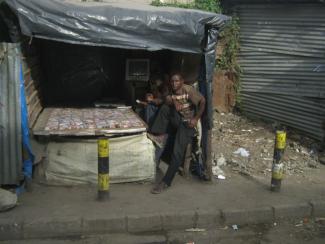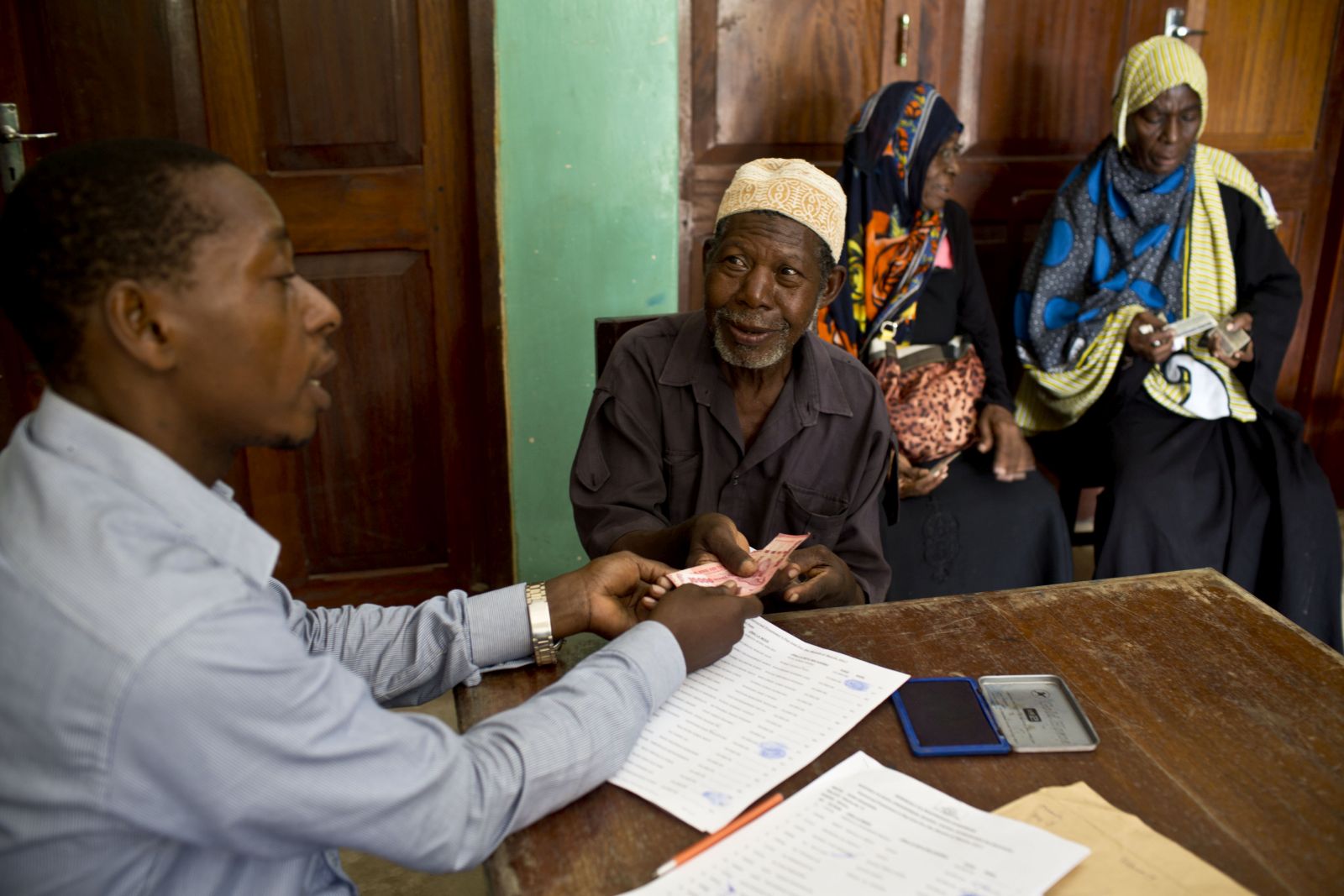Occupation
Why the western model doesn’t work

In developing countries and especially in Africa, informal employment tends to predominate. In rural areas, the bulk of agricultural work is done by families who operate small farms. Economists generally consider the head of the household to be self-employed, and the other members of the family as “contributing” family workers. Wage work is rare, and typically limited to daily jobs. People who have no access to land depend on it.
Non-agricultural work in rural and urban areas tends to be done in the informal sector. This sector is hard to define in a rigorous way, but it is an easily recognisable reality in developing countries nonetheless. Some of its important characteristics are that enterprises are not officially registered, use no modern accounting systems or do not pay taxes or contributions to social-protection schemes. African informal businesses are usually quite small. Self-employment is typically the dominant employment status.
Women tend to fare worse than men in the informal sector. Men are mostly over-represented in the handicrafts, transport and wholesale trade, whereas women often work as domestic servants or in retail businesses. Men have better access to capital and dominate the segments of the informal sector with the greatest potential. Nonetheless, productivity is mostly low, so the majority of persons concerned are stuck in poverty.
In 2016, according to estimates by the International Labour Organization, 68 % of workers in sub-Saharan Africa were in “vulnerable employment”. The concept of vulnerable employment only takes into account the self-employed and the contributing family workers. It omits employees in informal jobs, such as women serving as household helpers or informal staff of small workshops.
It is important to note, however, that informal employment does not only occur in the informal sector. For decades, insecure jobs that offer neither social protection nor decent remuneration have also been becoming ever more common in formally registered businesses and public-sector agencies.
In the past four decades, free-market fundamentalism, population growth and the decline of trade unions have driven the phenomenal expansion of informal employment in Africa. The International Monetary Fund and the World Bank imposed structural-adjustment programmes on African government in the 1980s and 1990s, focusing on macro-economic stabilisation, market liberalisation and privatisation. The results included:
- a reduction of public-sector employment and a deterioration of public services,
- the closure of an impressive number of manufacturing enterprises and
- worsening poverty in rural areas, with ever more people migrating to the cities.
The proponents of structural adjustment promised that the reforms would make African economies competitive on the world mark, triggering economic growth and ultimately leading to broad-based prosperity. Things did not turn out that way.
With low economic growth, the formalised private sector actually shed jobs or – at best – kept employment stable. The informal sector served as a “sponge”. It helped to “absorb” the peasant families who migrated to the cities, the dismissed workers and the members of young generation, including both school drop-outs and graduates unable to find more suitable jobs.
Jobless growth
It is true that economic growth resumed after the turn of the Millennium, but it hardly made a difference in terms of decent jobs. Growth was mostly the consequence of rising world-market demand for primary goods, which made prices surge. African economies expanded by about five percent per year, but that trend was driven by extractive sectors rather than by the kind of economic diversification that might have transformed agriculture, propelled related industries and kick-started manufacturing.
In spite of high growth rates, only few decent jobs were generated, as the UN Economic Commission for Africa and the African Union acknowledged in 2010. Senegal is an illustrating case. Its government reported in 2011 that the informal sector created an astonishing 99 % of all new jobs in the years 2001 to 2009.
In Africa, standard employment – full-time, with regular schedules, decent wages, a healthy and non-hazardous working environment, meaningful social protection et cetera – remains an island in an ocean of informality. As livelihoods are still mostly precarious, the rhetoric of an “emerging middle class” is no doubt exaggerated.
Even if African economies were to suddenly generate a large number of decent jobs, they would still be likely to be overwhelmed by the strong labour force growth. The scenario is similar to the Indian one (see article by Aditi Roy Ghatak in D+C/E+Z e-Paper 2017/10, p.33), but far more challenging. Africa’s population is growing much faster than India’s, and its modern economic sectors are weaker.
The plain truth is that Africa cannot copy the western development model. Trying to do so is a major strategic error and will likely condemn the great majority of African people in informal livelihoods, insecurity and poverty. A key issue is that western-style modernisation of agriculture means ever fewer farms with ever fewer workers producing ever more goods. If this approach continues to be taken in Africa, the cities will be completely overwhelmed by an enormous influx of people. It is therefore absolutely essential to take a different approach.
As African countries today, European countries were marked by population growth and worsening rural poverty when their industrial revolutions took off. Unlike in Africa today, however, mass emigration eased the pressure (see box). Allowing at least some emigration would be helpful in Africa now.
An alternative agenda
So what should African governments do?
First, agriculture development must build on small family farms and be geared to benefiting them. The farmers need coaching, and they deserve adequate infrastructure as well as social-protection schemes. Unfortunately, agriculture is the most neglected sector by both African governments and their international development partners. This must change.
Second, African governments have to ensure that economies become diversified. Commodities must be processed in Africa, and goods must be manufactured here. No country can hope to create masses of decent jobs unless it produces the goods and services it needs. Jobs can be created in significant numbers if steps are taken towards processing primary products domestically.
Africa’s employment challenge is huge. Fast population growth will continue for some time, and technological advances are set to make human labour increasingly redundant. The defence of peasant agriculture and the relocation of processing and manufacturing to Africa are necessary, but not sufficient to solve all problem.
More generally speaking, Africa needs a more favourable international environment, quite different from the “free trade” globalisation we have been witnessing in recent decades. The emphasis must be on solidarity, not competition. Governments need the policy space to pursue coherent development policies that suit their nations. A different kind of globalisation is not only desirable – it is necessary if we want to eradicate poverty as aspired in the UN 2030 Agenda and the Sustainable Development Goals.
Ndongo Samba Sylla manages programmes and research at the Dakar office of the Rosa Luxemburg Foundation, which is affiliated to Germany’s Left party.
n.sylla@rosalux.sn
This contribution triggered a letter to the editor. You'll find Reinhard Woytek's response to Ndongo Samba Sylla here.














